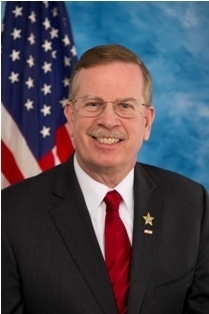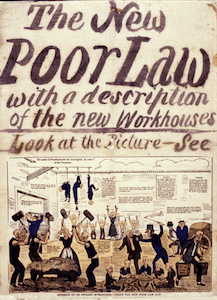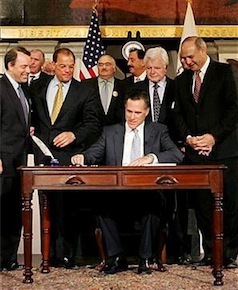Matthew Yglesias's Blog, page 2426
February 9, 2011
House Members Discovering That Health Care Status Quo Is Really Bad

Marin Cogan reports on the mismatch between House members' zeal to repeal the Affordable Care Act, and the realities of their experiences with the health insurance market:
"I have a niece who has pre-existing conditions, and I worry about her if she was ever to lose her job," said Florida Rep. Richard Nugent, one of the freshman lawmakers who declined federal health insurance benefits.
I worry too. But Nugent should note something. He worries about this only in case his niece actually loses her job. If she voluntarily switches to another job, she's fine. But that's thanks to a regulation that allows people who maintain continuity of coverage to keep it notwithstanding adverse selection issues. And the only reason Nugent's niece's employer offers group health benefits at all is that large insurers receive massive tax subsidies to do so. The health insurance market mostly works for most people most of the time only because it already involves massive government intervention. In an actual free market for health care, everyone would be like an unemployed niece with a pre-existing condition. You'd phone up an insurance company and say "I want to buy insurance that will pay for my health care if I get sick" and the company will quite naturally expect that you're already sick and refuse to sell it at any non-extortionate price.


19th Century Fusionism

From David Ricardo's 1817 book, Principles of Political Economy and Taxation:
It is a truth which admits not a doubt, that the comforts and well being of the poor cannot be permanently secured without some regard on their part, or some effort on the part of the legislature, to regulate the increase of their numbers, and to render less frequent among them early and improvident marriages. The operation of the system of poor laws has been directly contrary to this. They have rendered restraint superfluous, and have invited imprudence by offering it a portion of the wages of prudence and industry.
Apparently the welfare queens have been holding us back for two hundred years now. Bryan Caplan gives this argument its most up to date form. I stand with common sense that if you give poor people more money, that makes poor people better off.


Today in Arguments by Assertion

One of the great triumphs of recent conservative thought has been to not merely persuade many people that the restrictive interpretation of the commerce clause is correct, but to persuade them that it's obviously correct. So obvious that the disagreement about it can't just reflect larger disagreements about political principles but obviously represents bad faith on the part of liberals. Hence this sort of "argument":
Words mean things, and the power "to regulate commerce…among the several states" does not mean the power to tell Americans what they must buy.
Say what? Words mean things, and the power to regulate commerce among the several states means the power to enact comprehensive schemes of economic regulation, including of such commercial endeavors as the health insurance industry. If you're worried that congress might enact regulatory schemes you don't like, the solution is to not drive Arlen Specter out of your political party.


Occupational Licensing Does Not Decrease Wage Dispersion
Felix Salmon proposes that there's a silver lining to occupational licensing rules:
This is germane, because, broadly speaking, the more constraints you have on a profession, the less likely you are to see massive inequality within that profession. If you got rid of licensing for profession X, you'd see many more low-paid Xs than you do right now, and you'd also see a significant uptick in earnings at the very top of the X profession. It's a second-order effect, to be sure, but I'm pretty sure that at the margin, licensing helps to reduce inequality.
That's an interesting theory, but according to Morris Kleiner and Alan Krueger in their recent study "The Prevalence and Effects of Occupational Licensing" (PDF) it's not true:
Our study provides the first national analysis of the labour market implications of workers who are licensed by any agency of the government in the USA. Using a specially designed Gallup survey of a nationally representative sample of Americans, we provide an analysis of the influence of this form of occupational regulation. We find that 29 per cent of the workforce is required to hold a licence, which is a higher percentage than that found in other studies that rely on state-level occupational licensing data or single states. Workers who have higher levels of education are more likely to work in jobs that require a licence. Union workers and government employees are more likely to have a licence requirement than are non-union or private sector employees. Our multivariate estimates suggest that licensing has about the same quantitative impact on wages as do unions — that is about 15 per cent — and that being both licensed and in a union can increase wages by more than 24 per cent. However, unlike unions which reduce variance in wages, licensing does not significantly reduce wage dispersion for individuals in licensed jobs.
To answer Kevin Drum's question about how big a deal this is, I'd say 29 percent is a pretty big deal even if a healthy share of that is in health care fields where some licensing seems justified (and even here, the rules are problematic in a bunch of ways). What's more, the share is growing. The main reason I think it's a big deal, though, is in a forward-looking sense—the most egregious licensing abuse tends to be in precisely the personal service sectors where we're most likely to see medium-skill job growth in the future. It's nice that the license-holders get a wage premium, but they're clearly earning it here by blocking competition rather than by redistributing downward.


February 8, 2011
Endgame
Will they stop when they see me again?
— Revolutions sometimes go bad (though I don't accept this schematic account).
— Egypt's Muslim brotherhood loves human rights except for gay people.
— .
— The thing is, political views are driven by principle.
Apparently my token "I was into them way back in the day" band, Metric, is now on the soundtrack for a Twilight movie. Here's "All Yours"


Immigrants: They're People Too!

Andrea Nill highlights the sad case of Alabama State Senator Scott Beason who recently delivered an address on immigration that began with the observation "If you don't believe illegal immigration will destroy a community go and check out parts of Alabama around Arab and Albertville." Then, according to the Cullman Times, "Beason ended his speech by advising Republicans to 'empty the clip, and do what has to be done.'"
Does Beason stand by the claim that Republicans ought to murder unauthorized migrants? As it happens, he does not:
Beason now insists that his comments were taken out of context and that he was using an analogy and not urging violence.
This highlights something that is, I think, a central issue for immigration politics. It turns out that Mexicans are human beings. Even if they move to the United States. Even if they do so without permission. Murdering them is wrong! Whenever I write that the interests of the immigrants themselves deserves to be part of the immigration calculus, folks will email in to observe that this argument is hardly likely to carry the day politically. And it's probably not. But on the other hand, Beasons back-tracking underscores the fact that the American people aren't monsters. Even in Alabama it would be politically damaging to be thought of as the guy who wants to shoot Mexicans. And the reason it's wrong to shoot them is that they're people and their interests count.
So that's progress. Think of it as trivial if you like, but our country's first century would have been a very different place if "let's murder these people and take their land because they look funny and speak a foreign language" hadn't been considered a politically viable policy initiative. Continuing to push thinking about this question in a better direction over time is important.


What Carmax Can Tell Us About Winning The Future
One of the less-discussed Super Bowl ads was this one from CarMax, dramatizing the declining customer service standards at gas stations:
As is often the case, this is a kind of covert nostalgia for a past time when people were poorer. This work can function as a stand-in for lavish customer service precisely because it's so unproductive and wasteful of human time and effort. But as better machines and better education have raised economy-wide productivity and wage levels, it's become pointless to employ people doing this kind of thing. This is, however, a reminder that in a world where manufacturing output rises even as manufacturing employment falls that the jobs of the future are mostly going to be in the service sector, the sector that employs the vast majority of people even in Germany.
The issue is what kind of service sector jobs will people be able to do? A wiping your car's windowshield needs very few skills but also is producing very little value and won't earn much money. A yoga instructor, a chef, a plumber, a dental hygienist, or an interior designer is someone with more skills and more earning potential. What's more, in the more productive future we'll be able to afford more restaurant meals, and yoga lessons. We'll be able to afford cleaner teeth and better-designed homes.


Obama as Movement Leader

(cc photo by matthew.h.wade)
Reviewing Eric Alterman's Kabuki Democracy (haven't read it, loved the article on which it's based) my former boss Bob Kuttner makes what is, I think, the most valid progressive criticism of Barack Obama: "He has governed as if his sole task were legislative."
The reason I like this criticism is that I think it gives the White House its due. It's not a conspiracy theory about how secretly Barack Obama and his team are right-wingers. And it explains how an administration can simultaneously have angered so many liberal intellectuals, passed so much liberal legislation, and garned such approval from the broad mass of self-identified Democrats. Simply put, presidents do do things besides legislating. Things like movement-building. Obama hasn't done a lot to build the progressive "bench" for future judicial appointments, and he hasn't given a lot of succor and validation to folks like Kuttner, Alterman, or Yours Truly, the foot-soldiers in the ideological battle. On the contrary, he goes out of his way to deny the existence of such a battle. It annoys me, and I think it's moderately harmful over the longer-haul.
Ultimately, though, I join Alterman in being much less critical of Obama than Kuttner is because I'm not sure this really matters a great deal. You can see how a life-long legislator like Barack Obama would come to overrate the importance of legislating. But it's pretty important! And you can also see how a life-long warrior in the battle of ideas could come to overrate the importance of having the president back him up.


Nuclear Economics

I'm lacking a good news hook, but this is a good explanation from Daniel Davies of nuclear socialism:
It is not actually the up front investment that makes nuclear power schemes so unattractive to private capital – it's the back-loaded cleanup liability. This is an unusual kind of risk (most investment projects have an initial investment, then a period of profits, then end), and its risk of a quite toxic kind – you know it's there and that it's big, but it's way out in the future and almost impossible to estimate. This is why the nuke industry, when angling for government support (but I repeat myself) usually focuses on some guarantee of the cleanup liability. Since putting this on the public balance sheet doesn't actually make it go away or make it any less unattractive, I find myself slightly gratified that one consequence of the now-dying post-Thatcher free-market consensus is that it made nuclear power development in the Anglosphere more or less economically impossible.
This is why, in general, the most nuclearized countries (France, Japan) are also the most dirigiste. I'm not really persuaded that all things considered this is actually worse than status quo energy policy in the United States.


Bike Commuting On The Rise
Lizzy Bennett pens an ode to bike commuting and offers some interesting statistics:
It could be the rise of unemployment, the race to lower carbon emissions, or something in the water, but urban cycling is on the rise the United States. From 2006 – 2009, New York City built 200 miles of bike lanes and saw a 45% increase in commuter cycling. During the same time period, San Francisco built zero bike lanes and saw a 53% increase in bike commuting. Clearly infrastructure isn't keeping folks off their bikes; even people in Los Angeles are bike commuting! And organizations like Peopleforbikes.org are helping folks realize the magic of bike commuting.
I'm not surprised by the infrastructure finding here. The most important infrastructure for making city streets bike friendly is to have other cyclists on the streets. Obviously, if a city has a lot of people riding bikes then it only makes sense to build infrastructure for them, but that's different from saying the infrastructure will create the cyclists.
In policy terms, I'd say the stuff that really matters for cycling is the big picture stuff. A bicycle has a lot of drawbacks relative to a car. Its main advantages are that it's cheaper to buy, cheaper to operate, and smaller to store. Carbon taxes, fewer restrictions on high-density building, and less stringent regulatory parking mandates would make bicycling a more attractive transportation mode. And the existence of more cyclists on the road would, further, make bicycling a more attractive transportation mode.


Matthew Yglesias's Blog
- Matthew Yglesias's profile
- 72 followers



